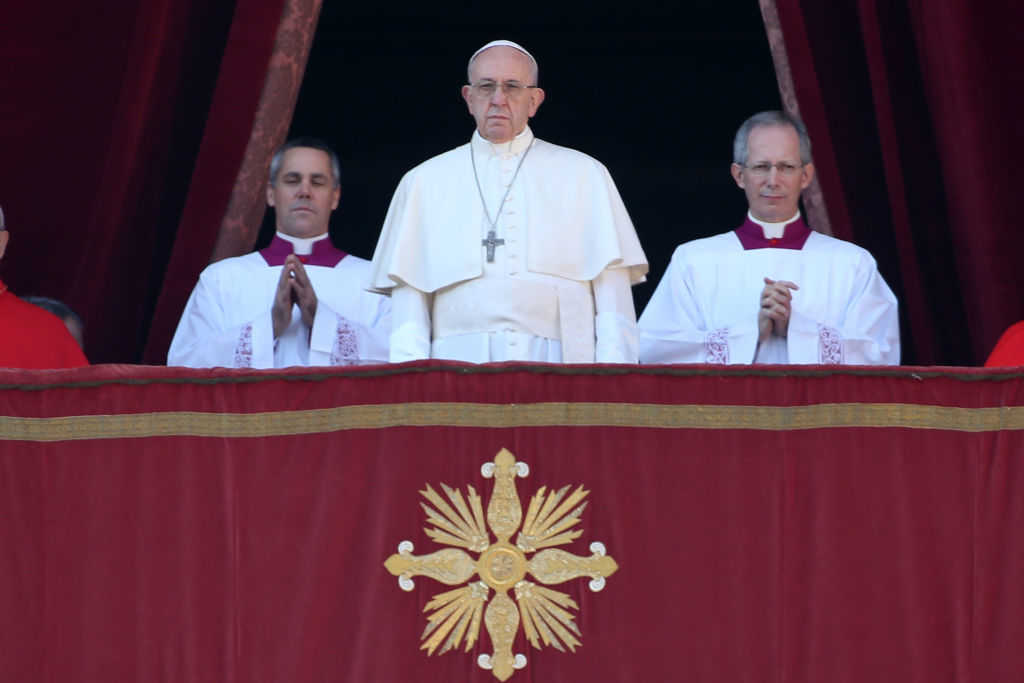Pope Francis came out swinging against “fake news” on Wednesday, releasing his annual communications statement that hits back at those who have willingly distributed faux headlines and stories.
READ: The Fiery ‘The View’ Segment That Led Joy Behar to Issue an On-Air Apology to Megyn Kelly
The pontiff, who released a message titled, “‘The Truth Will Set You Free:’ Fake News and Journalism for Peace,” as part of the 52nd annual World Communications Day, likened those responsible for fake news to Satan and encouraged reporters to adhere to truth.
In fact, he went as far as to compare fake news to the deceptive snake who slithered throughout the Garden of Eden in the book of Genesis, urging society to “unmask” the “snake-tactics” that are being used to distribute fake headlines.
“This was the strategy employed by the ‘crafty serpent’ in the Book of Genesis, who, at the dawn of humanity, created the first fake news (cf. Gen 3:1-15), which began the tragic history of human sin, beginning with the first fratricide (cf. Gen 4) and issuing in the countless other evils committed against God, neighbour, society and creation,” the statement reads.
While the pope didn’t get political or use the term in the same exact manner as people like President Donald Trump have, he did speak to the responsibility that reporters have to keep truth in check, as he said he is on a quest to help rediscover “the dignity of journalism and the personal responsibility of journalists to communicate the truth,” The National Catholic Reporter noted.
It is perhaps most prudent to define what, exactly, the pope means when he discusses “fake news.” His statement, in fact, broke down a definition that notes that this type of information is distributed either online or in “traditional media.”
“It has to do with false information based on non-existent or distorted data meant to deceive and manipulate the reader,” Pope Francis wrote. “Spreading fake news can serve to advance specific goals, influence political decisions, and serve economic interests.”
In the end, the pontiff argued that this type of information is anything but harmless and that it can have “dire consequences,” even if and when there is a “slight distortion of the truth.
Pope Francis concluded by calling for a different type of journalism, one that “promotes deeper understanding” and points out “alternatives to the escalation of shouting matches and verbal violence.”



